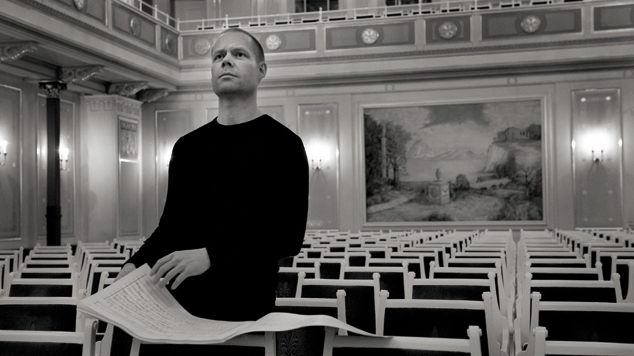Vivaldi’s The Four Seasons is undoubtedly one of the most recognisable pieces of classical music in the world, instantly recognisable and severely overplayed.
This presented a challenge for composer Max Richter – he recently released his version, discarding three quarters of Vivaldi’s original he’s created a dubby trip hob influenced version of the classic for a new generation.
The British composer’s previous work includes music for ballets, films and his award-winning score to the documentary Waltz with Bashir.
OUTinPerth dialed Berlin to talk to Richter one to one.
What attracted you to tackle Vivaldi’s ‘The Four Seasons’?
I love the Vivaldi. I think everybody does in some way, because it’s just part of our aural universe. It’s on the TV, it’s on the radio, it’s on the phone when you’re on hold and it’s in advertising. It’s just one of the most ubiquitous musical objects out there. Since falling in love with it when I was a kid, I’ve just slowly fallen out of love with it really, because I kept hearing it all the time. So I was aware of these two attitudes I had to it, firstly I love the music and secondly I hate this music. In a way the project was a way for me to reclaim the work for myself and to find a new way to love it, to find the things that originally excited me about it.
Which is your favourite season?
Meteorologically I’d say autumn because it’s when all the colours change and when you get all this drama, but musically I really like summer, both in the original Vivaldi and in the new version.
The album has been really well received and zoomed up the classical charts, was there a lot of nervous anticipation before it was released?
In a way yes, but I try not to think about that kind of stuff or else you just end up censoring yourself and then everything goes wrong. I did have in the back of mind, “I hope some people really like this, because I know a lot of people are going to really hate it.” I’ve been sort of surprised though, obviously there are some conservative classical people who really took offense but most people have embraced it in the spirit that I wrote it and that’s been a nice surprise.
Early in your career you were part of an ensemble that recorded a lot of Philip Glass and Steve Reich – were they big influences on you musically?
Yes, they invented a new way of listening. I think now, especially Glass’ musical language, is everywhere – that makes it harder for people to hear quite how shocking it was when he first released them – especially those early pieces that just go on and on and are very intense. But I love that kind of work and really respect it.
What’s coming up next for you?
I’m working on the new Ari Folman film, his follow up to Waltz with Bashir, it’s incredibly eclectic and the score goes all over the place, it has electronic music, orchestral music and goes all over the place. It’s been a lot of fun.
‘Vivaldi Recomposed’ by Max Richter is available now on Universal Classics and Jazz






